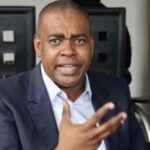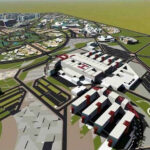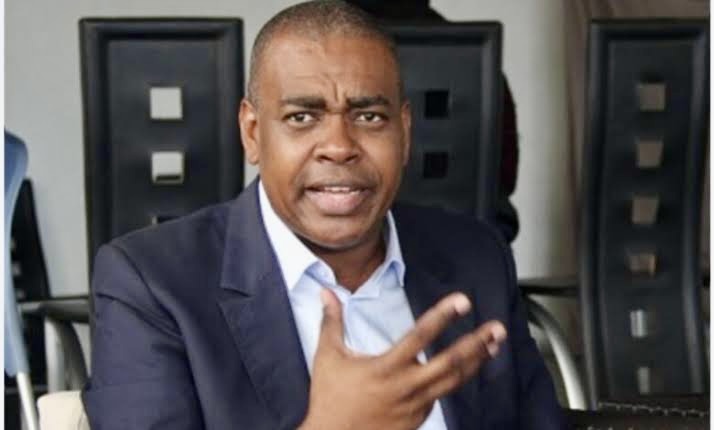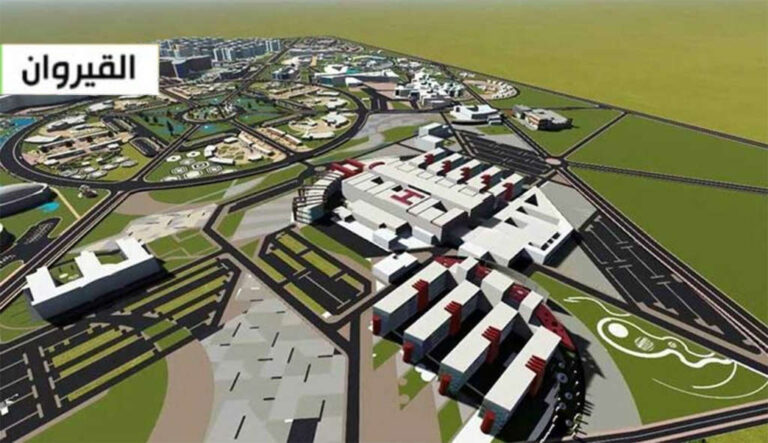– Advertisement –
By Sheriff Bojang Jnr
Nearly nine years after fleeing into exile in Equatorial Guinea, the former dictator says he’s returning home – a defiant move that exposes President Barrow’s fragile grip, a stalled justice process and the enduring nostalgia still haunting a nation trying to move on.
On Sunday, former president Yahya Jammeh drew hundreds of supporters to his home village of Kanilai, near the Gambia-Senegal border, for a much-trailed address.
– Advertisement –
As his voice crackled through loudspeakers, the crowd shifted between close attention and bursts of chanting and applause.
‘I have missed my country’
In a 13-minute speech relayed via WhatsApp, the former Gambian leader said he would return in November 2025 – nearly nine years after going into exile following his 2016 election defeat.
“Nobody can prevent me from coming in. I have missed my country,” Jammeh said, invoking an Ecowas-brokered deal and claims of betrayal.
– Advertisement –
“By the will of the Almighty, I will come back in November 2025 and stay peacefully in my motherland.”
It was Jammeh’s most direct statement since his departure, reigniting passions among loyalists and fear among those who lived through his 22-year rule.
A deal – or a delusion?
Jammeh said his return was guaranteed under a memorandum of understanding allegedly signed in 2017 during talks to end the post-election standoff that nearly pushed The Gambia into civil war after he refused to step down.
According to him, the document was drafted in his presence with then Guinean and Mauritanian presidents Alpha Condé and Mohamed Ould Abdel Aziz.
He said Halifa Sallah, one of the opposition coalition leaders at the time, signed for the Gambian side because president-elect Adama Barrow was in Dakar.
Jammeh also said Mohamed Ibn Chambas, then the UN special representative for West Africa, signed on behalf of the UN secretary-general.
“I signed it too and I believe Alpha Condé and others did as well,” he said.
He accused Ecowas officials of misleading him and prolonging his exile “due to a hidden agenda” within the coalition that forced him from power.
The claim is not new. Jammeh made similar assertions in recordings shared among supporters in 2019 and 2021, but neither Ecowas nor the UN has publicly confirmed or denied such a document.
That silence, analysts say, has left space for Jammeh’s narrative to gain traction among loyalists.
‘Continued ambiguity’ of the UN
Ecowas commissioner for political affairs Abdel-Fatau Musah did not respond to The Africa Report’s request for comment.
However, a former Ecowas consultant, speaking on condition of anonymity because of the sensitivity of his current position, said the “continued ambiguity” of the bloc and the UN over the supposed agreement has been “counterproductive”.
“Their refusal to clarify, perhaps to avoid reopening a sensitive episode, allows Jammeh to weaponise that vacuum and portray himself as a victim of a broken promise,” the consultant said.
“By refusing to set the record straight, Ecowas in particular has given Jammeh’s story oxygen and legitimacy, at least in the eyes of his followers.”
He added that, to his knowledge, the 2017 discussions aimed solely to prevent violence and secure Jammeh’s departure.
“From what I heard, there was a political understanding to facilitate Jammeh’s peaceful exit, not a legal MoU guaranteeing his return,” he said.
“If Jammeh insists otherwise, he will have to produce evidence.”
For us, Jammeh’s return without justice would reopen every wound this country has tried to heal
Reed Brody, a veteran human-rights lawyer who has worked with Gambian victims to build international cases against Jammeh, dismisses the claim of a guaranteed return as baseless.
“There is no legal or diplomatic basis for Yahya Jammeh’s claim that Ecowas guaranteed his safe return,” says Brody.
“The 2017 Joint Declaration on the Political Situation in The Gambia – which was unsigned and rejected by the incoming government – contains no assurance against prosecution, nor could it.”
His promised return, he adds, should be met not with a red carpet, but with an arrest warrant and a fair trial.
At the time, Jammeh’s departure was negotiated under intense international pressure, with Senegalese troops massed at the border and Ecowas forces on standby.
Justice deferred, dictator emboldened
Gambia’s Truth, Reconciliation and Reparations Commission (TRRC), which concluded hearings in 2021, found Jammeh responsible for murders, torture, sexual violence and enforced disappearances, and recommended his prosecution for crimes against humanity.
Though President Barrow accepted the findings, implementation has been slow.
The drift has angered victims and rights advocates, who say it has given Jammeh space to reassert himself.
“Jammeh’s message pricks old wounds, interrupts the healing of victims and retraumatises them,” says Madi Jobarteh, founder of the Edward Francis Small Centre for Rights and Justice.
“Nine years is a long time without justice in full, whether it’s reparations or prosecutions and convictions. His message only serves to devastate the hope and resilience of victims,” he told The Africa Report.
Arrest Jammeh on arrival?
Jobarteh says the government’s credibility will hinge on whether it acts decisively if Jammeh returns.
“As soon as Jammeh steps foot in The Gambia, the government has only one choice; to arrest him,” he says.
“He was the chief executive who bore the legal and political obligation to protect human rights. Yet under his watch, gross violations took place. The only logical position for the government is to arrest him.”
Failing to do so, Jobarteh warns, would “endanger the peace and stability of Gambia” and validate fears that Barrow prioritises political alliances over justice.
“We recall how he visited Jammeh’s home in Kanilai ahead of the 2021 election and later forged an alliance with the APRC.
“Coupled with the fact that he has since reinstated key Jammeh enablers in his cabinet, parliament and public institutions, failing to arrest Jammeh would therefore mean Barrow is complicit in the crimes of Jammeh, as this would constitute covering up crimes and excusing criminals.”
Information minister and government spokesperson Ismaila Ceesay says Jammeh will face due process if he returns.
“Jammeh, as a private citizen on self-exile, can come back, and if he does so, he would be subject to the due process of the law set out in the TRRC process,” he told The Africa Report.
“As regards the government’s role in Jammeh’s comeback decision, government played no role, absolutely nothing whatsoever.”
Political shockwaves
Jammeh’s announcement has jolted The Gambia’s fragile politics. President Adama Barrow faces mounting discontent ahead of the 2026 elections amid rising prices, corruption scandals and ebbing confidence in his National People’s Party.
His uneasy alliance with a faction of Jammeh’s Alliance for Patriotic Reorientation and Construction could unravel.
The party split in 2021 into a pro-Barrow faction led by National Assembly speaker Fabakary Tombong Jatta and a “No Alliance” faction loyal to Jammeh.
In Kanilai, supporters hailed the announcement as “the return of the real president”.
For victims of the regime – including families of those executed, tortured or disappeared – the prospect of his return without accountability feels like a national betrayal.
“For us, Jammeh’s return without justice would reopen every wound this country has tried to heal,” says Fatoumata Sandeng, daughter of opposition activist Solo Sandeng, whose 2016 torture and killing by state security forces became a rallying point for the movement that swept Barrow to power.
“My father died fighting for change, and now it feels like that sacrifice is being forgotten. If Jammeh walks free, then what was the point of everything we went through?”
A regional court takes shape
Jammeh’s vow to return comes less than a year after Ecowas leaders approved a Special Tribunal for The Gambia, a hybrid court to prosecute crimes against humanity, torture and other grave abuses committed during his rule.
The decision – hailed by UN special rapporteur Bernard Duhaime as “a historic step toward accountability” – followed years of pressure from civil society and was based on the TRRC’s recommendations naming Jammeh and 68 former officials for prosecution.
Yet critics say Barrow’s slow, hesitant handling of the TRRC process has drained public trust and emboldened those nostalgic for Jammeh’s authoritarian era.
Culled from theafricareport.com










